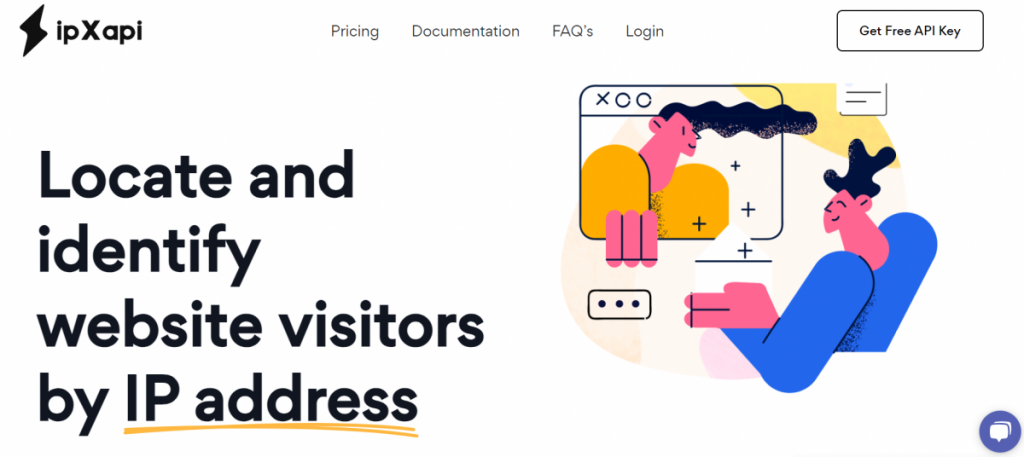In the modern digital landscape, the ability to gather and analyze data is crucial for businesses and organizations. One valuable piece of information that can be used for various purposes is the IP address of a user. An IP address is a unique identifier assigned to each device connected to a network. To simplify the process of retrieving IP address information, many developers turn to IP Address API. In this article, we will explore the most common use cases of IP Address APIs, with a focus on the functionalities offered by Ipxapi.
Understanding IP Address APIs

Before diving into the use cases, let’s briefly understand what an IP Address API is and how it works. An API, or Application Programming Interface, is a set of rules and protocols that allows different software applications to communicate with each other. An IP Address API specifically provides a way to access and retrieve information about IP addresses.
Ipxapi is a powerful IP Address API that offers a range of features and functionalities. It allows developers to retrieve geolocation data, ISP details, and other relevant information associated with an IP address. Now, let’s explore the most common use cases of Ipxapi.
Use Case 1: Geolocation and Targeted Marketing
One of the most common use cases of IP Address APIs is geolocation-based targeted marketing. By leveraging the geolocation data provided by Ipxapi, businesses can tailor their marketing campaigns to specific regions or countries. For example, an e-commerce website can display localized content, provide region-specific promotions, or offer products that are popular in a particular area. This level of personalization can significantly improve the effectiveness of marketing efforts and increase conversion rates.
Use Case 2: Fraud Detection and Prevention
Another important use case of IP Address APIs is fraud detection and prevention. By analyzing the geolocation data and ISP details obtained from Ipxapi, businesses can identify suspicious activities and potential fraudsters. For example, if an IP address is associated with a high-risk location or a known proxy server, it can raise red flags and trigger additional security measures. This can help protect businesses from fraudulent transactions, account takeovers, and other malicious activities.
Use Case 3: Content Localization
For businesses with a global presence, content localization is a crucial aspect of their strategy. By leveraging the geolocation data provided by Ipxapi, businesses can dynamically serve content that is relevant to the user’s language, culture, and preferences. This includes displaying prices in the local currency, translating website content, or offering region-specific recommendations. Content localization can significantly improve user engagement, customer satisfaction, and overall brand perception.
Use Case 4: Network and Security Optimization
IP Address APIs like Ipxapi can also be used for network and security optimization. By retrieving ISP details and geolocation data, businesses can gain insights into the performance and reliability of their network infrastructure. For example, if a particular ISP consistently shows high latency or poor connectivity in a specific region, businesses can take proactive measures to improve the situation. Additionally, the API can help identify potential security threats by flagging IP addresses associated with malicious activities or known botnets.
Use Case 5: Compliance with Regional Regulations
In certain industries, businesses need to comply with regional regulations and restrictions. IP Address APIs can assist in ensuring compliance by providing accurate geolocation data. For example, if a streaming service is required to enforce content restrictions based on the user’s location, Ipxapi can help identify the country from which the user is accessing the service. This allows businesses to provide the appropriate content based on regional licensing agreements and comply with legal requirements.
Use Case 6: Enhanced User Experience
By leveraging the functionalities of IP Address APIs, businesses can enhance the user experience on their platforms. For instance, a travel booking website can automatically detect the user’s location using Ipxapi and display localized flight options, hotel recommendations, and popular attractions. This level of personalization can greatly improve the user experience, making the platform more engaging and user-friendly.
Use Case 7: Data Analytics and Insights
Finally, IP Address APIs can be used for data analytics and gaining insights into user behavior. By analyzing the geolocation data and ISP details, businesses can understand their audience better and make informed decisions. For example, they can identify emerging markets, target specific regions for expansion, or analyze traffic patterns to optimize their marketing campaigns. This data-driven approach can help businesses stay ahead of the competition and make strategic decisions based on real-time information.
To make use of it, you must first:

- Go to Ipxapi.com and simply click on the button “Sign-Up” to start using the tool.
- After signing up in Ipxapi, you’ll be able to use Free Trial.
Read more: Best ip geolocation api tips to use it
Conclusion
As we have explored in this article, IP Address APIs like Ipxapi offer a range of use cases that can benefit businesses and organizations. From geolocation-based marketing and fraud detection to content localization and network optimization, the possibilities are vast. By leveraging the functionalities of Ipxapi, businesses can enhance their marketing efforts, improve security measures, comply with regional regulations, and provide a personalized user experience. The use cases mentioned here highlight the versatility and value that IP Address APIs bring to the digital landscape.

